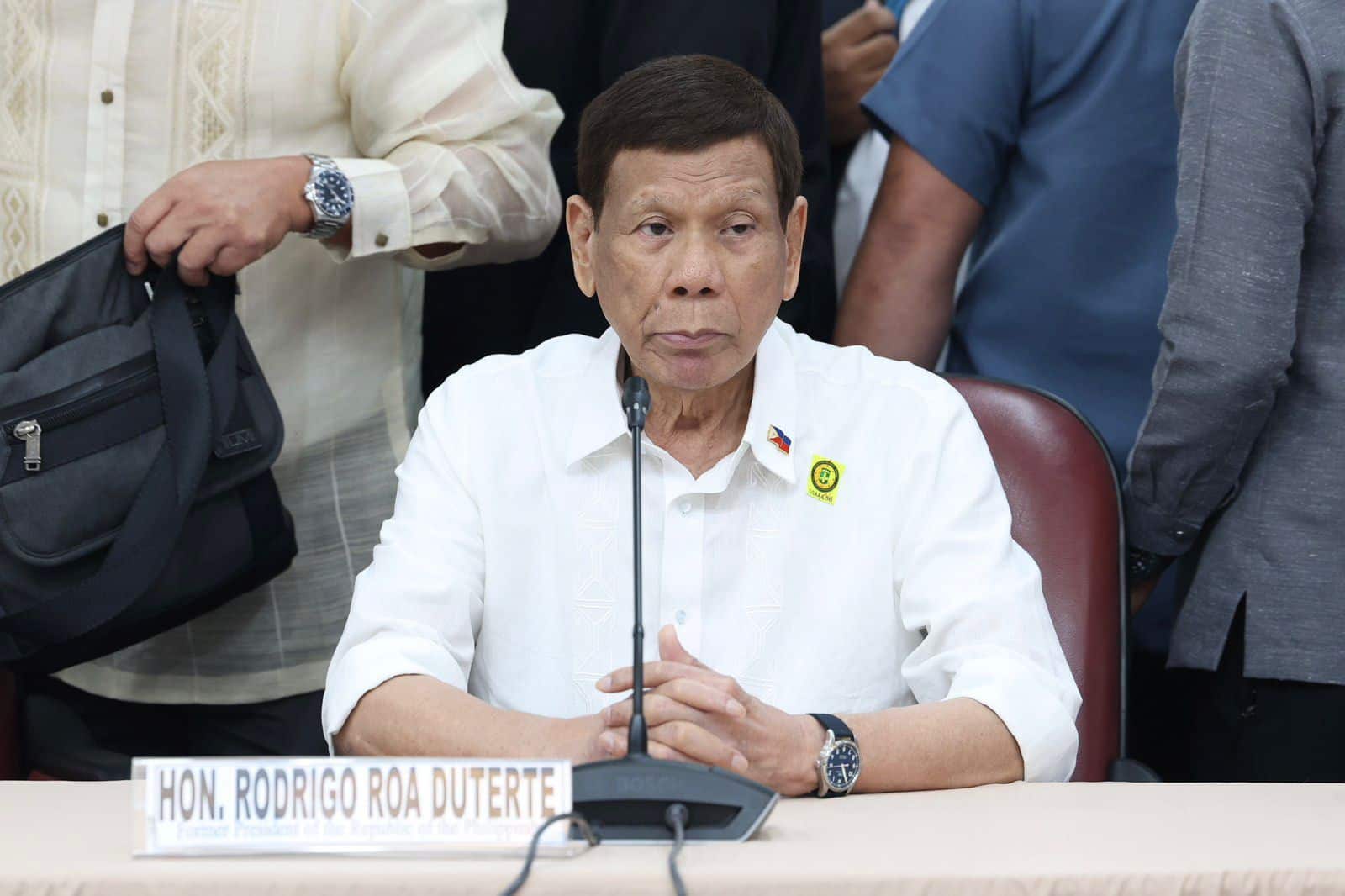Excess campaign funds used for drug war reward system, Duterte admits

Former President Rodrigo Duterte attends the House quad comm hearing on Nov. 13, 2024. (Photo from House of Representatives Media Bureau)
MANILA, Philippines — The excess campaign funds of then-president Rodrigo Duterte were used for the reward system of police officers during his administration’s brutal war on drugs.
Duterte himself admitted this to Santa Rosa City Rep. Dan Fernandez during the House of Representatives quad committee during its 11th probe on his controversial anti-drug campaign.
“I still remember that you mentioned na yung pera galing sa donation ng inyong campaign funds will be utilized for the reward system, that’s private money,” Fernandez said.
(I still remember you mentioned that the money from the donation for your campaign funds would be utilized for the reward system.)
“Yes, pero galing sakin, di na private money kasi natanggap ko yan hawak ko na, I was holding to it when I was already… opisyal na ako,” Duterte immediately answered.
Article continues after this advertisement(Yes, from me, that is not private money; I received that, and I was holding to it when I was already an official.)
Article continues after this advertisementFernandez, however, asserted that the excess money should be “returned to the donors” under the Commission on Elections (Comelec) rules.
“Maniwala… tanungin kita sinong kandidato nag-sauli?” Duterte asked, but Fernandez said that he’s not allowed to pop such question.
(I don’t believe that I will ask you to name a candidate who returned [the excess money])
The lawmaker again asked the former chief executive if the excess money was utilized for the reward system.
“Public interest. To protect public interest, yes,” he said.
Asked about the excess campaign funds, Commission on Elections Chairperson George Garcia said that keeping them is not against the law.
“But since considered income siya, dapat magbayad ng income tax ang kandidato,” Garcia told INQUIRER.net in a Viber message.
(But since it’s considered income, the candidate has to pay taxes.)
Under Rule 5, Section 5 of Comelec Resolution No. 9991—or the Omnibus Rules and Regulations Governing Campaign Finance and Disclosure—it is also provided that “any unexpended balance from any contribution to candidate or party, also known as excess contributions, shall be subject to income tax”.
Likewise, the Bureau of Internal Revenue (BIR) Revenue Memorandum Circular No. 31-2019 states that unused, or excess, campaign funds, including the net of the candidate’s or political party’s or party list’s campaign expenditures, “shall be considered as subject to income tax and as such, must be included in their/his taxable income as stated in their/his Income Tax Return.”
“No further deduction, either itemized or optional, shall be made against the said taxable income,” BIR said.
In a Senate hearing last month, retired police colonel Royina Garma revealed that rewards given to police officers and officials involved in drug war operations under the “Davao template” range from P20,000 to P1 million.